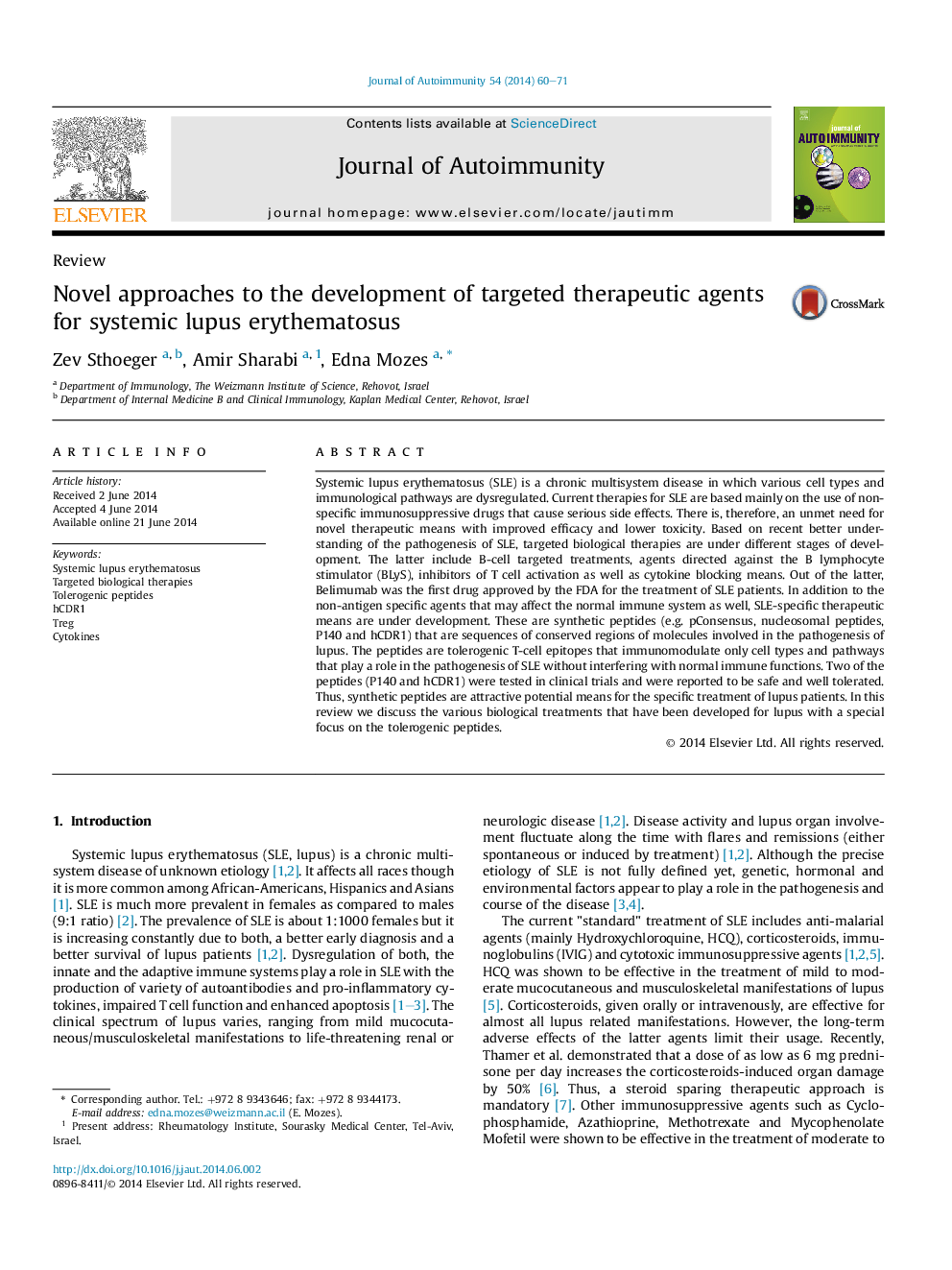| Article ID | Journal | Published Year | Pages | File Type |
|---|---|---|---|---|
| 3367784 | Journal of Autoimmunity | 2014 | 12 Pages |
Systemic lupus erythematosus (SLE) is a chronic multisystem disease in which various cell types and immunological pathways are dysregulated. Current therapies for SLE are based mainly on the use of non-specific immunosuppressive drugs that cause serious side effects. There is, therefore, an unmet need for novel therapeutic means with improved efficacy and lower toxicity. Based on recent better understanding of the pathogenesis of SLE, targeted biological therapies are under different stages of development. The latter include B-cell targeted treatments, agents directed against the B lymphocyte stimulator (BLyS), inhibitors of T cell activation as well as cytokine blocking means. Out of the latter, Belimumab was the first drug approved by the FDA for the treatment of SLE patients. In addition to the non-antigen specific agents that may affect the normal immune system as well, SLE-specific therapeutic means are under development. These are synthetic peptides (e.g. pConsensus, nucleosomal peptides, P140 and hCDR1) that are sequences of conserved regions of molecules involved in the pathogenesis of lupus. The peptides are tolerogenic T-cell epitopes that immunomodulate only cell types and pathways that play a role in the pathogenesis of SLE without interfering with normal immune functions. Two of the peptides (P140 and hCDR1) were tested in clinical trials and were reported to be safe and well tolerated. Thus, synthetic peptides are attractive potential means for the specific treatment of lupus patients. In this review we discuss the various biological treatments that have been developed for lupus with a special focus on the tolerogenic peptides.
